EUROPE
The Critical Dictionary on Borders is finally available online!
November 2022Published in paper format in 2020, this major publication, to which the MOT contributed, is finally available online.
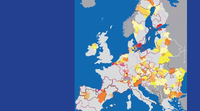
Published in paper format in 2020, this major publication, to which the MOT contributed, is finally available online.
At the request of Greater Geneva, the MOT produced a note in September taking stock of the methods of financing mobility and the financial resources allocated.
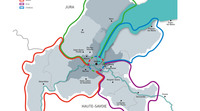
Spatial planning is one of the essential levers for achieving carbon neutrality. This is why the partners of Greater Geneva wished to commit themselves to drawing up a new "cross-border territorial vision" in line with the objectives of ecological transition and to build the territory of tomorrow with a view to being carbon neutral by 2050.
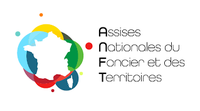
On October 6th and 7th, the Assises Nationales du Foncier et des Territoires were held in Nancy. Aimed at discussing land issues in all their aspects, from upstream to downstream and from strategy to implementation, they brought together nearly 600 people, elected representatives and professionals, from both public and private sectors, for conferences, workshops and round tables, in 11 thematic sessions.

The agreement between Switzerland and France on the taxation of cross-border workers has been extended until 31 October 2022.
Focus on two border initiatives at the heart of the European project.
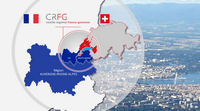
On 12 May 2022, a meeting of Greater Geneva’s political body for cooperation, the Franco-Geneva Regional Committee, which brings together local elected representatives and decentralised authorities from both sides of the border, met in Geneva.

Every month until June, the MOT is letting Borders Forum speakers have their say about a topic that will be at the heart of the discussions.
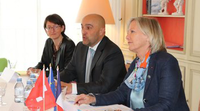
On the sidelines of the Franco-Swiss Dialogue that took place on 11 March 2022 in Belfort, a "Franco-Swiss declaration on bilateral cooperation in the area of healthcare" was signed between the two countries.
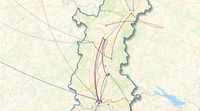
A "web" is a new method for observing innovative sectors. It consists of a mode of visualisation of ecosystems through the representation of their players and the relationships that connect them, and is designed to be a "participatory and experimental tool".
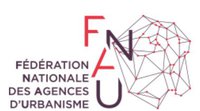
After the AGUR(1), AGAPE(2) and the Saint-Omer AUD(3), the MOT has the pleasure of welcoming two new urban planning agencies into its network: the Besançon Centre Franche-Comté Urban Planning Agency (AUDAB) and the Atlantic-Pyrenees Urban Planning Agency (AUDAP).

As part of its special report on border exchanges, the Journal des Français à l'étranger has been investigating the difficulties faced by cross-border workers on a daily basis.
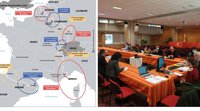
This autumn, and for the second consecutive year, the MOT organised nine “territorial meetings”, so as to keep in close contact with the members of its network, and involve them in preparing its annual programme. Held successively in Besançon, Strasbourg, Lille, Annemasse, Charleville-Mézières, Nice, Urrugne, Perpignan and Metz, both virtually and in person, the meetings brought together close to 200 participants in total.
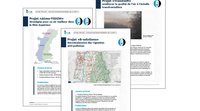
Following on from the MOT’s workshop “Breathing without borders” held on 13 October during the EURegionsWeek, the MOT has published three project factsheets corresponding to the examples of good practices presented during the workshop.
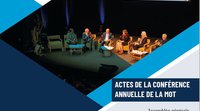
The four roundtables held during the MOT’s annual event on 21-22 September gave rise to rich discussions among the 200 participants present in Morteau and La Chaux-de-Fonds.

At a time when the pandemic is on the rise again in Europe and health measures are being strengthened on both sides of the Rhine, the European Territorial Authority of Alsace and the Grand Est Region, in cooperation with the Centre Européen de la Consommation (European Centre for Consumer Protection) and the INFOBEST network, have made available a digital tool to aid with crossing borders.
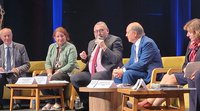
In the presence of Joël Giraud, Minister of State for Rural Affairs under the Minister for Territorial Cohesion and Relations with Local Government, more than a hundred participants from all of France’s borders gathered for the MOT’s general assembly on 21-22 September in Morteau and La Chaux-de-Fonds, at the invitation of the Doubs Urban Conurbation.

"The Doubs Urban Conurbation was set up in 2006. Initially an informal collaboration, it led to the creation of a local grouping of cross-border cooperation, the only one in the Franco-Swiss Jura Arc running between the Basel Trinational Eurodistrict and Greater Geneva. Today the LGCC comprises the Val de Morteau group of municipalities and the towns of Chaux-de-Fonds and Le Locle.
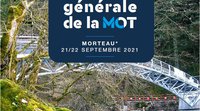
The MOT’s general assembly is taking place this year in Morteau and La Chaux-de-Fonds on 21-22 September, at the invitation of the Doubs Urban Conurbation, a member of its network. Joël Giraud, Minister of State under the Minister for Territorial Cohesion, in charge of Rurality (France) and former Vice-President of the MOT, will speak at the end of the first day.
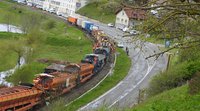
Seven years after its creation, the LGCC* of the Doubs Urban Conurbation (Agglomération Urbaine du Doubs – AUD) has shown its effectiveness in helping local elected representatives to get to know one another better, which has enabled them to set out joint projects while at the same time speaking with one voice on behalf of the binational territory.

Following its adoption at its first reading in the Senate on 21 July 2021, the 3DS bill (standing for “differentiation, decentralisation, deconcentration and various measures to simplify local public action”) will be examined under a fast-track procedure in the Assemblée Nationale, in France, from the beginning of December. Taking on a number of the proposals put forward by the MOT, the senators adopted a series of amendments relating to cross-border issues.

The health situation threw up a major challenge – that of providing a suitable format for citizens’ participation in the middle of a pandemic. In collaboration with the Euro-Institut and the MOT, the Basel Trinational Eurodistrict (ETB) developed a concept organised around a questionnaire and several virtual events. The aim was both to ensure broad participation from the population and to facilitate real exchanges between citizens from the three countries.

The Basel trinational conurbation is a genuinely shared living area that is strongly interconnected. In designing our Strategy 2030, it seemed extremely important to us to set our goals in accordance with what matters to the region’s population.
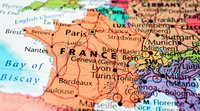
In anticipation of the reading of the 4D bill in Parliament, the MOT, on behalf of its network, has sent to the co-rapporteurs of the Senate’s Law Commission on this legislation proposed amendments aimed at strengthening its cross-border component.
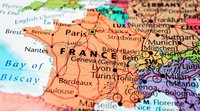
The “4D” bill was presented during the Council of Ministers’ session on 12 May. It will be subject to an accelerated parliamentary procedure, and its reading in the Senate is scheduled for July.